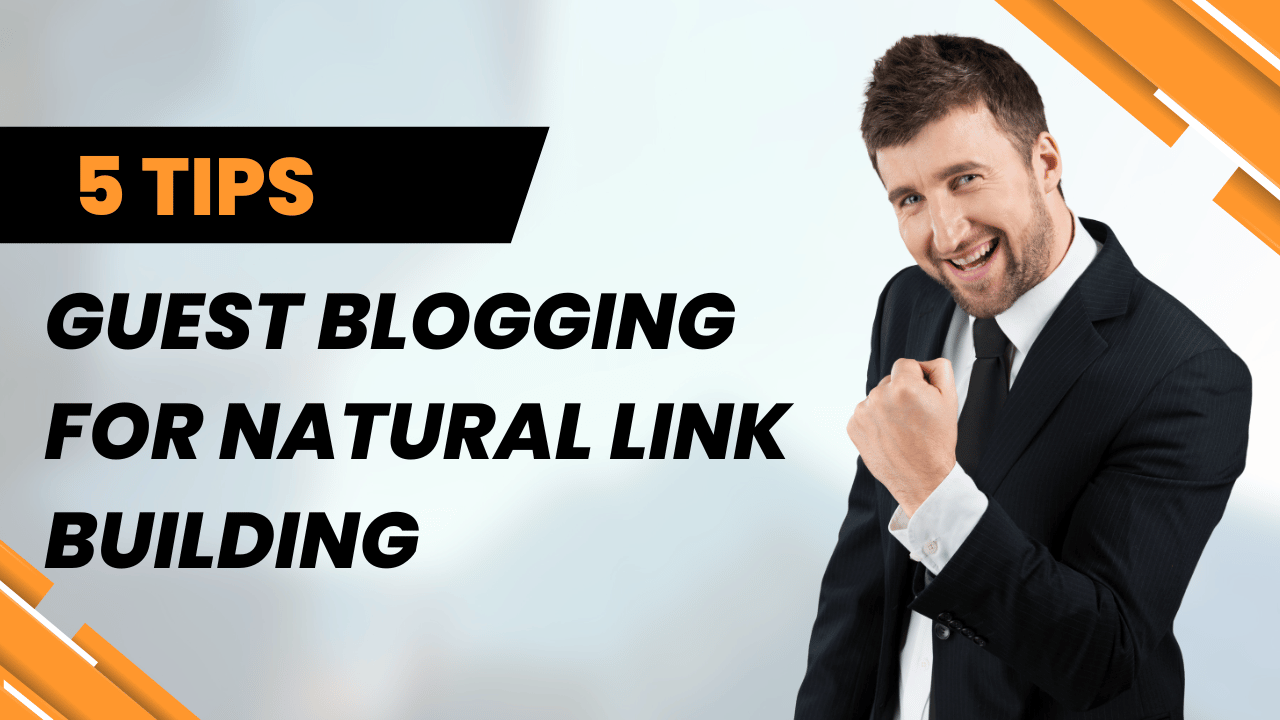SEO
How to Use Guest Blogging for Natural Link Building?
- Introduction to guest blogging and natural link building
- Understanding the importance of backlinks for SEO
- Finding relevant websites for guest blogging opportunities
- Researching and creating valuable content for guest posts
- Approaching website owners and pitching your guest post ideas
- Writing guest posts that provide value and engage the audience
- Optimizing your guest post for SEO purposes
- Building relationships with website owners and bloggers
- Tracking and analyzing the performance of your guest posts
- Avoiding common mistakes in guest blogging
- Leveraging social media to amplify the reach of your guest posts
- Strategies for natural link building through guest blogging
- Guest blogging as a long-term link building strategy
- Monitoring and maintaining your guest blogging efforts
- Conclusion
How to Use Guest Blogging for Natural Link Building
Guest blogging is a powerful strategy that can help you build natural and high-quality backlinks to your website, ultimately improving your search engine rankings and driving more organic traffic. In this article, we will explore the step-by-step process of effectively using guest blogging for natural link building, providing you with practical tips and insights along the way.
Introduction
In the ever-evolving landscape of SEO, link building remains a crucial factor in determining the visibility and authority of a website. Backlinks from reputable and relevant websites are like votes of confidence in the eyes of search engines, signaling that your content is valuable and trustworthy. Guest blogging allows you to tap into the existing audiences of other websites while earning backlinks in the process.
Understanding the Importance of Backlinks for SEO
Before diving into the specifics of guest blogging, it’s important to understand why backlinks are vital for SEO. Search engines consider backlinks as indicators of a website’s authority and relevance. When a reputable website links to your content, it signifies that your content is valuable and worth referencing. This, in turn, can positively impact your search engine rankings and organic visibility.
Finding Relevant Websites for Guest Blogging Opportunities
The first step in utilizing guest blogging for natural link building is finding relevant websites in your niche that accept guest posts. Start by conducting thorough research to identify websites that align with your industry, target audience, and content topics. Look for websites that have an established readership and a history of publishing guest posts.
Researching and Creating Valuable Content for Guest Posts
Once you’ve identified potential websites for guest blogging, it’s essential to research their existing content and audience preferences. Take the time to understand the topics they cover, the writing style they prefer, and the needs of their readers. This information will help you create valuable and engaging content that resonates with the audience of the target website.
Approaching Website Owners and Pitching Your Guest Post Ideas
After researching and creating your guest post, it’s time to approach the website owners or editors with your pitch. Craft a personalized and compelling email that introduces yourself, demonstrates your expertise, and outlines your proposed guest post ideas. Make sure to highlight the value that your content will bring to their audience.
Writing Guest Posts that Provide Value and Engage the Audience
When writing your guest posts, focus on delivering value to the readers of the target website. Provide actionable tips, insights, and unique perspectives that can genuinely help the audience solve their problems or answer their questions. Use a conversational tone, incorporate personal experiences, and make the content engaging and easy to read.
Optimizing Your Guest Post for SEO Purposes
While creating valuable content is crucial, it’s also important to optimize your guest post for SEO. Pay attention to on-page optimization elements such as using relevant keywords, writing compelling meta descriptions, and structuring your content with appropriate headings (H1, H2, H3, etc.). Additionally, include relevant internal and external links within your guest post to enhance its SEO value.
Building Relationships with Website Owners and Bloggers
Guest blogging is not just about obtaining backlinks; it’s also an opportunity to build relationships within your industry. Engage with the website owners, editors, and other bloggers by commenting on their posts, sharing their content on social media, and providing value beyond your guest post contributions. Building strong relationships can lead to future guest blogging opportunities and collaboration.
Tracking and Analyzing the Performance of Your Guest Posts
To measure the success of your guest blogging efforts, track and analyze the performance of your guest posts. Monitor the traffic, engagement metrics, and backlinks generated from each guest post. This data will help you identify which websites and topics yield the best results, allowing you to refine your guest blogging strategy over time.
Avoiding Common Mistakes in Guest Blogging
Guest blogging is not without its challenges, and it’s essential to avoid common mistakes that can hinder your success. Some common pitfalls to watch out for include neglecting proper research, submitting low-quality content, over-optimizing anchor texts, and disregarding the guidelines provided by the target website. Stay vigilant and ensure that your guest blogging efforts align with best practices.
Leveraging Social Media to Amplify the Reach of Your Guest Posts
To maximize the impact of your guest posts, leverage social media platforms to amplify their reach. Share your guest posts on your own social media profiles and encourage others to do the same. Engage with your audience by responding to comments and fostering conversations around your guest posts. Social media can help drive additional traffic and increase the visibility of your content.
Strategies for Natural Link Building Through Guest Blogging
To achieve natural link building through guest blogging, focus on creating valuable content that naturally attracts backlinks. Invest time and effort in conducting original research, sharing unique insights, and providing comprehensive guides. When your content stands out as a valuable resource, other websites are more likely to reference and link to it organically.
Guest Blogging as a Long-Term Link Building Strategy
Guest blogging should be seen as a long-term link building strategy rather than a one-time effort. Consistently contributing high-quality guest posts to reputable websites in your niche can establish your authority and generate a steady stream of backlinks over time. Set goals, allocate resources, and maintain a consistent guest blogging schedule to reap the long-term benefits.
Monitoring and Maintaining Your Guest Blogging Efforts
As your guest blogging efforts evolve, it’s crucial to monitor and maintain your guest posts. Regularly check the links to ensure they are active and redirecting correctly. Keep track of any new comments or engagement on your guest posts and respond promptly. By actively maintaining your guest blogging efforts, you can continue to reap the benefits of your hard work.
Conclusion
Guest blogging is a powerful strategy for natural link building and improving your website’s SEO performance. By following the step-by-step process outlined in this article, you can effectively leverage guest blogging to earn high-quality backlinks, increase your online visibility, and establish your authority in your industry. Remember to focus on providing value, building relationships, and continually refining your guest blogging strategy to achieve long-term success.
FAQs
1. How many guest posts should I aim to write? It depends on your resources and goals. Start with a manageable number, such as one guest post per month, and gradually increase your output as you become more comfortable and efficient.
2. Should I accept guest posts on my own website? Accepting guest posts on your website can be beneficial as it diversifies your content and introduces new perspectives. However, ensure that the guest posts align with your website’s quality standards and offer value to your audience.
3. Can I repurpose my existing blog posts as guest posts? While repurposing content is a common practice, it’s important to tailor your guest posts to the target website’s audience and guidelines. Make necessary adjustments and additions to ensure the guest post provides unique value.
4. How long should a guest post be? Guest posts typically range from 800 to 2,000 words, depending on the website’s guidelines and topic complexity. Focus on delivering comprehensive and valuable content rather than solely adhering to a specific word count.
5. Is it necessary to disclose that my guest post contains a backlink to my own website? Yes, transparency is essential. It’s considered good practice to disclose that you are the author of the guest post and that it includes a backlink to your own website. Be transparent and maintain the integrity of your guest blogging efforts.

